You need to pay attention to the market, but not write to the market.
http://kidlit.com/2016/02/22/writing-with-a-market-in-mind/
Viewing: Blog Posts Tagged with: market, Most Recent at Top [Help]
Results 1 - 25 of 34
Blog: Just the Facts, Ma'am (Login to Add to MyJacketFlap)
JacketFlap tags: market, Add a tag
Blog: Monica Gupta (Login to Add to MyJacketFlap)
JacketFlap tags: products, list, Cartoons, market, rate, vegetable, costlier, increased, List of products to get costlier from June 1, service tax, Add a tag
महंगाई महंगाई महंगाई !!!! आम आदमी के लिए जीना मानो दूभर होता जा रहा है … कोई बचत करे तो तब करे जब कुछ बचे … यहां तो सैलरी आते ही… इसका बिल उसका बिल, दूध, बिजली, पानी, पैट्रोल , फीस, आदि भरते भरते जेब खाली हो जाती है… बेचारे पिगी बैंक का हाल आप देख ही रहे हैं
news vegetable and fruit rates high in market must read
List of products to get costlier from June 1
नई दिल्ली। हर महीने की एक तारीख का लोगों को बेसब्री से इंतजार रहता है। 1 तारीख का आमतौर पर मतलब होता है तनख्वाह आना। लेकिन, 1 जून यानी सोमवार को आपकी जेब भारी नहीं हल्की होगी। ऎसा इसलिए क्योंकि आपको मंहगाई का झटका लगने वाला है। सर्विस टैक्स की बढी दरें एक जून से लागू हो जाएंगी। सोमवार से 14 प्रतिशत सर्विस टैक्स देना होगा। इसमें एजुकेशन सेस भी शामिल होगा। अभी सर्विस टैक्स 12 प्रतिशत है। एजुकेशन सेस मिलाकर यह 12.36 प्रतिशत होता है। लेकिन एक जून से होटल में रूकना-खाना, गाडियां, मूवी टिकट की ऑनलाइन बुकिंग, मैरिज वेन्यू, केबल सर्विस, रेल और हवाई यात्रा समेत कई सेवाएं महंगी हो जाएंगी। निगेटिव लिस्ट में शामिल एग्रीकल्चर, मेडिकल, समेत 16 सेवाओं की कीमत में बदलाव नहीं होगा। इससे सरकार की कमाई में 25 फीसदी तक बढोतरी होगी। इस साल 2.09 लाख करोड रूपये मिलेंगे। पहले 1.68 लाख करोड कमाई का अनुमान था। ये सब भी होंगे महंगे-होटल में रूकना-खाना। -वाहन खरीदना। -मूवी टिकट की ऑनलाइन बुकिंग। – मैरिज वेन्यू। -केबल सर्विस। -कुरियर, एप बेस्ड कैब सर्विस। -ब्यूटी पार्लर-सैलून में मसाज। -प्लास्टिक बैग, बोतलबंद पानी। -म्यूजिक कंसर्ट, थीम पार्क। -इंश्योरेंस प्रीमियम भी होगा महंगा। -रेल और हवाई यात्रा समेत कई सेवाएं होगी महंगी। जानें, कितना पडेगा असर-1000 का टिकट 5 रूपए महंगा होगा। -1000 के खाने पर 49 रू. ज्यादा लगेंगे। -1000 रू. के मोबाइल बिल पर 16 रू. ज्यादा। List of products to get costlier from June 1 Read more…
कुल मिला कर इस महंगाई का कोई न कोई समाधान जरुर निकलना चाहिए अन्यथा …
The post महंगाई appeared first on Monica Gupta.
Add a CommentBlog: OUPblog (Login to Add to MyJacketFlap)
JacketFlap tags: Economics, business, Journals, amazon, microsoft, google, market, economy, focus groups, public policy, Social Sciences, *Featured, Business & Economics, oxford journals, economic policy, policy makers, field experiments, governments, oxford review of economic policy, Robert Metcalfe, Add a tag
Do neighbourhoods matter to outcomes? Which classroom interventions improve educational attainment? How should we raise money to provide important and valued public goods? Do energy prices affect energy demand? How can we motivate people to become healthier, greener, and more cooperative? These are some of the most challenging questions policy-makers face. Academics have been trying to understand and uncover these important relationships for decades.
The post Field experimenting in economics: Lessons learned for public policy appeared first on OUPblog.
Blog: Darcy Pattison's Revision Notes (Login to Add to MyJacketFlap)
JacketFlap tags: creative risk, writing life, genre, market, audience, format, Add a tag
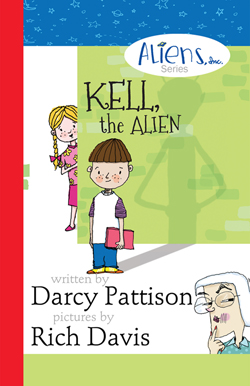 |
 |
 |
I’ve been writing for years. (Let’s not discuss how many exactly!) It’s easy to fall into habits and to think about stories in certain ways. The best creative people, though, insist that they are constantly learning and to do that, they try something different. They take risks.
Let me suggest some risks you might want to take:
Try a different genre. If you’ve only written nonfiction, try a novel. Love writing picturebooks? Try a webpost. Good writing is good writing is good writing. But platforms DO make a difference in length, diction (your choice of vocabulary to include/exclude), voice and more. Why not try writing a sonnet?
Try for a different audience. Stretch your genre tastes and try a different one. Write a romance for YAs. Or a mystery for first graders. Are all of your protagonists female? Then try writing from a male’s POV and try to capture a male audience.
Try a different process or word processing program. I took a class on Scrivener this spring and am continuing to explore what this amazing program can and can’t do. I’m also learning Dragon Dictate to lessen the ergonomic strain on my hands. I know that these programs have potential to change not just my writing process, but also the output. I’m just not sure HOW they will affect it. It’s a risk.
Market to different places. While we often separate the writing from the marketing–especially when we think about the creative process–I think you can still take creative risks with marketing. For example, identify a market FIRST, and write specifically for that market. In this case, you are letting the market sculpt your creative output. If you write a short story for Highlights Magazine for Kids, it’s got to be 600 words or less. If you write an op-ed piece for the Huffington Post, everything is different in your creative output. If you decide to self-publish, you may find yourself suddenly taking the question of commercial viability much more seriously.
Blog: Ronica Stromberg (Login to Add to MyJacketFlap)
JacketFlap tags: Uncategorized, fairy tales, writing, children's stories, market, Add a tag
Last August I blogged about writing markets for child authors. After I’d compiled a list on my blog, the editor of the e-zine Knowonder! contacted me to let me know it also publishes children’s writing (as well as children’s stories written by adults). I was unfamiliar with the e-zine but saw it paid, so I submitted a few stories online. Knowonder! recently purchased a Christmas story from me.
The editor has since let me know that Knowonder! is now accepting chapter books for ages 7 to 9. If you’re interested, you can find guidelines and submit at knowonder.submittable.com/submit
From what I’ve submitted to this publisher, I gather the editors are seeking stories more like traditional fairy tales, with an element of magic or fantasy. They ask for “imaginative, exciting, action-filled” stories. They don’t appear to be seeking run-of-the-mill contemporary stories with everyday situations set in ordinary settings.
Blog: Darcy Pattison's Revision Notes (Login to Add to MyJacketFlap)
JacketFlap tags: agent, access, readers, market, book marketing, connect, Add a tag
DA wrote to ask for help in developing a proposal to send to an agent. As part of the fiction package, the agent was asking for this information.
“Marketing strategies (what will you do to sell your book in cooperation with the publisher?) Increasingly, fiction and non-fiction authors are encouraged to promote their novels themselves through writers’ conferences, book signings, and web sites. We suggest you establish a web site, and you’ll need to create promotional giveaways, arrange your own book signings, or attend writers’ conferences. Think outside of the box.”
Basically, the agent–and ultimately the publisher–want to know a couple simple things. Who do you know, what access do you have to potential readers (online or offline), and what are you willing to do?
Who Do you Know?
Do you know experts in related fields. For example, if a character is a psychologist, do you know any psychologists who can blurb it?
Do you have access to influential people to do Blurbs? Maybe the president of a Romance Writer’s Arkansas Chapter? Do you volunteer for the Mystery Writers group and you’ve met a couple editors or such?
What are you Willing to Do?
Create a website.
Start a blog.
Create a Facebook Fan page.
Speak at writer’s conferences, librarian’s convention, local reading councils.
Do school visits.
Maintain a Twitter presence, a Pinterest board, etc–what social media can you or will you do?
Here, you should include everything you are already doing and how successful you are at doing them. Maybe you do 100 school visits a year, or have 5000 Pinterest followers. List everything you already do and give statistics on traffic.
Then, list everything you plan to do as soon as you have a contract. Perhaps, you already have a website and blog, but you plan to start a Facebook Fan page for the new book. Be positive. Never say, “I hope to. . .” Instead, say, “Nine months before publication, I will ________; six months before publication, I will __________.”
What Access do you have to Readers?
Here, the publisher and agent want to know your online and offline reach. Put audiences you “own” first, such as mailing lists of people who have said they are interested in your career. Then list any places you can reach people. Here are some hypothetical examples:
Through my website, I have a mailing list of 2000+ people who are interested in my career.
My last three GoodReads Giveaways have averaged 562 people signing up.
I am a member of XXX professional listserv which has a readership of 10,000 librarians.
I have been interviewed twice by XXX program on XXX radio, which has a listener base of 5000.
For my last book, I was on XXX TV station for Mother’s Day.
I will be attending XXX convention and will speak to an audience of 200.
Put as much data as you can and spin it as well as you can.
What if you have no online or offline reach?
I doubt that is the case, surely you belong to SOME group that would like to hear about your new book. But if you truly have no audience reach, then do NOT apologize. Just list what you can do and be done with it. The story is the most important thing anyway.
Blog: OUPblog (Login to Add to MyJacketFlap)
JacketFlap tags: meta, Current Affairs, government, Power, market, organizations, state, VSI, network, governing, politicians, globalization, very short Introductions, laws, institutions, European Union, Governance, rule, global economy, *Featured, Law & Politics, corporation, organisations, VSIs, Mark Bevir, meta-governance, social practices, “governance”, schulz, bevir, hollowing, Add a tag
By Mark Bevir
Governance, governance everywhere – why has the word “governance” become so common? One reason is that many people believe that the state no longer matters, or at least the state matters far less than it used to. Even politicians often tell us that the state can’t do much. They say they have no choice about many policies. The global economy compels them to introduce austerity programs. The need for competitiveness requires them to contract-out public services, including some prisons in the US.
If the state isn’t ruling through government institutions, then presumably there is a more diffuse form of governance involving various actors. So, “governance” is a broader term than “state” or “government”. Governance refers to all processes of governing, whether undertaken by a government, market, or network, whether over a family, corporation, or territory, and whether by laws, norms, power, or language. Governance focuses not only on the state and its institutions but also on the creation of rule and order in social practices.
The rise of the word “governance” as an alternative to “government” reflects some of the most important social and political trends of recent times. Social scientists sometimes talk of the hollowing-out of the state. The state has been weakened from above by the rise of regional blocs like the European Union and by the global economy. The state has been weakened from below by the use of contracts and partnerships that involve other organizations in the delivery of public services. Globalization and the transformation of the public sector mean that the state cannot dictate or coordinate public policy. The state depends in part on global, transnational, private, and voluntary sector organizations to implement many of its policies. Further, the state is rarely able to control or command these other actors. The state has to negotiate with them as best it can, and often it has little bargaining power.
But, although the role of the state has changed, these changes do not necessarily mean that the state is less important. An alternative perspective might suggest that the state has simply changed the way it acts. From this viewpoint, the state has adopted more indirect tools of governing but these are just as effective – perhaps even more so – than the ones they replaced. Whereas the state used to govern directly through bureaucratic agencies, today it governs indirectly through, for example, contracts, regulations, and targets. Perhaps, therefore, the state has not been hollowed-out so much as come to focus on meta-governance, that is, the governance of the other organizations in the markets and networks that now seem to govern us.
The hollow state and meta-governance appear to be competing descriptions of today’s politics. If we say the state has been hollowed out, we seem to imply it no longer matters. If we say the state is the key to meta-governance, we seem to imply it retains the central role in deciding public policy. Perhaps, however, the two descriptions are compatible with one another. The real lesson of the rise of the word “governance” might be that there is something wrong with our very concept of the state.
All too often people evoke the state as if it were some kind of monolithic entity. They say that “the state did something” or that “state power lay behind something”. However, the state is not a person capable of acting; rather, the state consists of various people who do not always not act in a manner consistent with one another. “The state” contains a vast range of different people in various agencies, with various relationships acting in various ways for various purposes and in accord with various beliefs. Far from being a monolithic entity that acts with one mind, the state contains within it all kinds of contests and misunderstandings.
Descriptions of a hollow state tell us that policymakers have actively tried to replace bureaucracies with markets and networks. They evoke complex policy environments in which central government departments are not necessarily the most important actors let alone the only ones. Descriptions of meta-governance tell us that policymakers introduced markets and networks as tools by which they hoped to get certain ends. They evoke the ways central government departments act in complex policy environments.
When we see the word “governance”, it should remind us that the state is an abstraction based on diverse and contested patterns of concrete activity. State action and state power do not fit one neat pattern – neither that of hollowing-out or meta-governance. Presidents, prime ministers, legislators, civil servants, and street level bureaucrats can all sometimes make a difference, but the state is stateless, for it has no essence.
Mark Bevir is a Professor of Political Science at the University of California, Berkeley. He is the author of several books including Governance: A Very Short Introduction (2012) and The State as Cultural Practice (2010). He is also the editor or co-editor of 10 books, including a two volume Encyclopaedia of Governance (2007). He founded the undergraduate course on ‘Theories of Governance’ at Berkeley and teaches a graduate course on ‘Strategies of Contemporary Governance’.
The Very Short Introductions (VSI) series combines a small format with authoritative analysis and big ideas for hundreds of topic areas. Written by our expert authors, these books can change the way you think about the things that interest you and are the perfect introduction to subjects you previously knew nothing about. Grow your knowledge with OUPblog and the VSI series every Friday!
Subscribe to the OUPblog via email or RSS.
Subscribe to only law and politics articles on the OUPblog via email or RSS.
Subscribe to only VSI articles on the OUPblog via email or RSS.
Image Credit: Martin Schulz during the election camapign in 2009. Creative Commons Licence – Mettmann. (via Wikimedia Commons)
The post Does the state still matter? appeared first on OUPblog.
Blog: Anwers from digital publisher (Login to Add to MyJacketFlap)
JacketFlap tags: research, writers, readers, market, idea, Answers, writing book, book, authors, publishing, WRITING, Add a tag
Achieving the title of becoming a published author now is far more reachable than no one had ever dreamed of just a couple of decades ago. Many writers have thrown themselves into the vortex of self-publishing industry, but as usual, only a few have achieved the desirable recognition and satisfactory pay cheques. Determination and honest, hard work plus the risk of committed capital are not aspects I would like to focus on. All writers are trying their best but only a few books are good enough for the modern day readers who are well educated, know what they are paying for and have become very astute and choosy. Unfortunately, many writers tend to look at their written work as a manifestation of their sacrifice to educate or entertain the readers. The readers do not take into consideration the writers ‘effort. They are boldly and brutally looking at every book as a ... Read the rest of this post
Add a CommentBlog: Utah Children's Writers (Login to Add to MyJacketFlap)
JacketFlap tags: market, publishing industry, system, writing wednesday, Add a tag
Systems, after all, have rules which, if followed, produce consistent results.
As aspiring authors, we study examples of things that worked, from pitches and queries to hooks and books, driven by the faith that if we can just figure out and follow the rules, we too will be published.
But publishing isn't a system.
First, there's no governing body to agree upon and enforce the rules. [Jane Friedman, a publishing industry veteran, has a blog called, There are No Rules to make this very point.]
Second,it's not consistent. I've heard people wryly characterize publishing as a high-security facility and would-be authors as infiltrators. If an author breaks into the facility, there's a big celebration, and then the guards seal the breach and add extra security measures to make sure no one else can ever get in that way again. It's a bit cynical, but there's an important element of truth in that story: it's different for everyone.
So, if publishing isn't a system, what is it?
"I know this one," you say. "Publishing is a business."
That's a much better characterization, but it still falls short. "A business," implies organization, perhaps even a degree of centralization. The fact that the big six publishers are all located in in New York certainly looks like centralization. But publishing is more than New York (sorry, Big Apple), and is not well enough organized to call it, "a business."It is, in fact, many businesses.
The best characterization is that publishing is a market--not a commodities market (i.e., you can't replace writing with corn and have the same market), but a market just like the market for goods and services where you live.
Open markets are about the things being traded, but they're also about the relationships among buyers and sellers. Why do you patronize certain stores and not others? Likely because the people at the stores you like have done something for you, like remembering your name or giving you a discount.
In the context of a market, where customers can freely choose among vendors, following "the rules" doesn't guarantee that customers will buy from you. Will, for example, a restaurant that follows all the "rules" of good restaurants always succeed in a market where there are plenty of restaurants to choose from? The "rules" might be necessary for success, but they're not sufficient to ensure success.
Clearly, if you want to participate in the market, you have to offer competitive goods or services. The "rules" of writing help define what it takes to produce a competitive novel. But once you're in the market, the game changes to one of relationships. So stop wondering why no one has recognized the merit of your novel and get out and meet some people.
Blog: Anwers from digital publisher (Login to Add to MyJacketFlap)
JacketFlap tags: idea, audience, press release, Answers, MARKETING, editors, advertising, traffic, market, Add a tag
Answering your questions about Press Release structure. Timing: Press release can be “for immediate release”, or “release on a specific date”. It is recommended to use the first preference since the latter may not be honored at all times. Target: To whom the press release is intended. When targeting a specific group of people or professions, it may read like the following: Attention sports editors, Attention business editors, Attention entertainment editors. Headline: This can be opted to write in all capital letters. Consider using shorter titles and make it interesting. Alliteration can be of help or giving tips. Sub-Headline: This is optional. However, sub headlines are used to get the attention of readers and audience. This also provides a description of the target niche or specific topic. Date: It is necessary when reporting, such as news clip or other events specified with a date. For example, a press release written for some key speaker for ... Read the rest of this post
Add a CommentBlog: Emily Smith Pearce (Login to Add to MyJacketFlap)
JacketFlap tags: Travel, photography, Spain, market, Mallorca, Add a tag
Here are a few highlights from our October trip to Mallorca, off the coast of Spain. While it’s definitely been built up in a touristy way, Mallorca is truly a beautiful island, and there are lots of treasures to find. Like these:
You would not believe this bird park. We totally stumbled across it—-it was literally across the street from our hotel, but clearly other visitors had made a pilgrimage. There were some serious birders hefting cannon-sized cameras and telescopes. Unfortunately we didn’t really know what birds we were seeing, but we loved it all the same. The marshy setting is spectacular, and at several points there are hides, which are kind of like little dugouts from which you can watch birds unnoticed. Cool, eh?
Alcudia was the nearest “old” town near our hotel, so we went there a lot, exploring the ruins of the Roman wall and enjoying Mallorcan variety fried-in-front-of-you donuts.
Below is one of my favorite finds in Alcudia. Can you just imagine what’s behind this door?
I also loved poking through the market.
I’ve never been a huge olive fan, but when you’re in Spain, it’s practically a sin not to eat them, and I became a bit of a convert. I’d never seen virgin olives in the flesh before.
Mallorca seems like a dream now that the weather has turned bitterly cold.
Newsflash! I finally finished the Cuppa Cuppa duvet cover. Hoping to photograph it soon for you. Now inching along with this patchwork project. I’ve also picked up a knitting project from five years ago that I had given up on. Five years! Has it really been five years?! Hope springs eternal.
Meanwhile, my YA novel is also inching along in revision.
Have a great weekend!
Blog: Anwers from digital publisher (Login to Add to MyJacketFlap)
JacketFlap tags: marketing, people, FEATURED, market, Answers, invention, Add a tag
Why would you sell your own invention? Answers from Elena Ornig Initially, anyone who thinks they have invented something has to clearly evaluate the actual state of their invention: is it just an idea; a self-made prototype, or already a manufactured product for which they are seeking local or overseas distribution? To be honest, that should be your second thought. Your first thought should concentrate on patent licensing, because regardless of what it is, it is your intellectual property. Your intellectual property has monetary value for a simple reason- you can sell it for a profit. Why would you sell your own invention? The reason is quite practical. By selling your invention, idea or self-made prototype you take away the considerable pressure of finding and investing start-up capital into the processes of product evaluation, licensing, manufacturing, packaging, distribution, promotion, and so on. You can first pay a relatively small amount to have your invention ... Read the rest of this post
Add a CommentBlog: Anwers from digital publisher (Login to Add to MyJacketFlap)
JacketFlap tags: digital, media, market, consumers, marketing, PUBLISHING, advertising, Add a tag
Answers From presents opinion of Anya Tretyakova. The simple fact is that television is too pervasive a medium to be unregulated. In August 2009, James Murdoch delivered the MacTaggart Lecture at the Edinburgh International Television Festival and spoke about the UK Media Industry, specifically public service broadcasting, digital media and journalism, and government regulation. Although a unique media market in and of itself, the UK media structure is not entirely dissimilar to Australia’s own, especially in regards to the presence of government-subsidised public service broadcasters such as the ABC and SBS (Hawkins). Murdoch compares current government regulation of broadcast media in the UK with creationism, dominated by the licence fee-funded BBC and asserts that this has led to an unnatural state where business and commercial investment are stifled and creativity and innovation is quashed. He argues most of all for the deregulation of commercial media and for the allowance of profit to ... Read the rest of this post
Add a CommentBlog: OUPblog (Login to Add to MyJacketFlap)
JacketFlap tags: emerging adult, Jeremy Uecker, Mark Regnerus, premarital sex, Premarital Sex in America, sex before marriage, sexual economics, premarital, marrying, market, wins, Economics, young adults, Sociology, winning, Psychology, sex, marriage, pornography, porn, sexual, chart, emerging, *Featured, Add a tag
By Michelle Rafferty
As most of you probably know by now, there’s a new stage in life – emerging adulthood, or for the purposes of this post, the unmarried young adult. Marriage is getting pushed off (26 is now the average age for women, 28 for men) which means…more premarital sex than ever!
According to sociologists, emerging adults are all part of a sexual market in which the “cost” of sex for men and women in heterosexual relationships is pretty different. Out of this disparity has risen the theory of “sexual economics,” which I recently read up on in Premarital Sex in America: How Young Americans Meet, Mate, and Think about Marrying. At first glance women appeared to be the clear losers in this market. See this passage:
Sexual economics theory would argue that sex is about acquiring valued “resources” at least as much as it is about seeking pleasure. When most people think of women trading sex for resources, they think of prostitution and money as the terms of exchange. But this theory encourages us to think far more broadly about the resources that the average woman values and attempts to acquire in return for sex – things like love, attention, status, self-esteem, affection, commitment, and feelings of emotional union. Within many emerging adults’ relationships, orgasms are not often traded equally.
Basically, the sexual economics theory says that while women and men are doing the same thing during sex, socially they are doing two different things. Women can and do enjoy sex, but they also have an agenda, while men…just want to have sex. Which to me just seemed, well, sad. Hadn’t women all finally agreed that a man can’t ever make you happy, only you can? But the more I read up on the theory of sexual economics, the less cut-and-dry it became. Women might use sex to get commitment, but they’re also getting things like advanced degrees and independent financial stability - which also play a role in this new sexual economy. This led me to ask: are men really the clear winners in this game? I scoured the countless studies and interviews in Premartial Sex in America and came up with the following chart to sort all the data out.
Wins in the Emerging Adult Sexual Market by Gender
Tally:
Women &
Blog: MCFC Books (Login to Add to MyJacketFlap)
JacketFlap tags: china, video, market, ryan, Add a tag
This video starts off a little bouncy but stick with it if you want a peek at what it’s like to go to a local vegetable and meat market here in Lin’an, China. This was made last summer when a student and I were filming various things around town.
Add a CommentBlog: Just the Facts, Ma'am (Login to Add to MyJacketFlap)
JacketFlap tags: market, middle_grade, reviews, blogs, Add a tag
Lists, author interviews, market news, and a behind-the-scenes look at publishing for writers and lovers of middle-grade books.
http://www.fromthemixedupfiles.com/
Blog: Just the Facts, Ma'am (Login to Add to MyJacketFlap)
JacketFlap tags: market, Add a tag
Things to think about when you choose a title.
http://pimpmynovel.blogspot.com/2010/06/rose-by-any-other-name.html
Blog: Just the Facts, Ma'am (Login to Add to MyJacketFlap)
JacketFlap tags: school, market, Add a tag
Author Cynthia Lord gives 6 1/2 hints to have a successful school visit.
http://donnagephart.blogspot.com/2010/06/school-visits-with-cynthia-lord-top-6.html
Blog: Mishaps and Adventures (Login to Add to MyJacketFlap)
JacketFlap tags: food, Green, market, Nikki McClure, To Market, paper cut, Add a tag
Nikki McClure is working away cutting out her next book TO MARKET. Here is a photo of her progress so far.
Blog: Just the Facts, Ma'am (Login to Add to MyJacketFlap)
JacketFlap tags: internet, market, Add a tag
Get an email whenever Google indexes a mention of you or your book (or anything else you set up.)
www.google.com/alerts
Blog: Ginger Pixels (Login to Add to MyJacketFlap)
JacketFlap tags: child, Ginger Nielson, elephants, fruit, market, skinny, early morning, Add a tag
Blog: Just the Facts, Ma'am (Login to Add to MyJacketFlap)
JacketFlap tags: ebooks, market, Add a tag
Frog Media sells picture books that can be read/heard on the iPhone.
http://www.istorytimeapp.com/
Blog: Just the Facts, Ma'am (Login to Add to MyJacketFlap)
JacketFlap tags: market, young_adult, news, Add a tag
Sourebooks Fire will launch a young adult imprint in Spring 2010.
http://www.publishersweekly.com/article/CA6699678.html?nid=2788&source=link&rid=350446227
Blog: Just the Facts, Ma'am (Login to Add to MyJacketFlap)
JacketFlap tags: books, market, Add a tag
Publishers Weekly lists titles, by publisher, of kids' books coming out in the fall
http://ow.ly/p2XR
Blog: Just the Facts, Ma'am (Login to Add to MyJacketFlap)
JacketFlap tags: publishers, market, picture_books, Add a tag
With a six titles in its first list, Hammond will debut a new book line this fall.
http://www.publishersweekly.com/article/CA6669625.html?nid=2788&source=title&rid=350446227
View Next 8 Posts



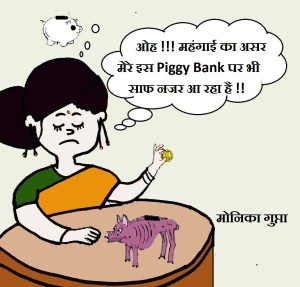









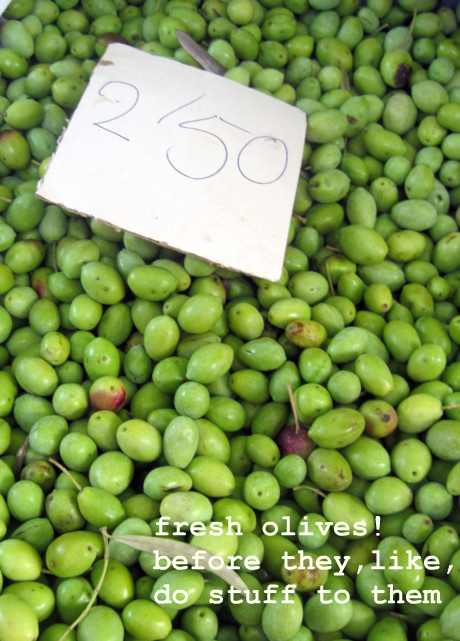


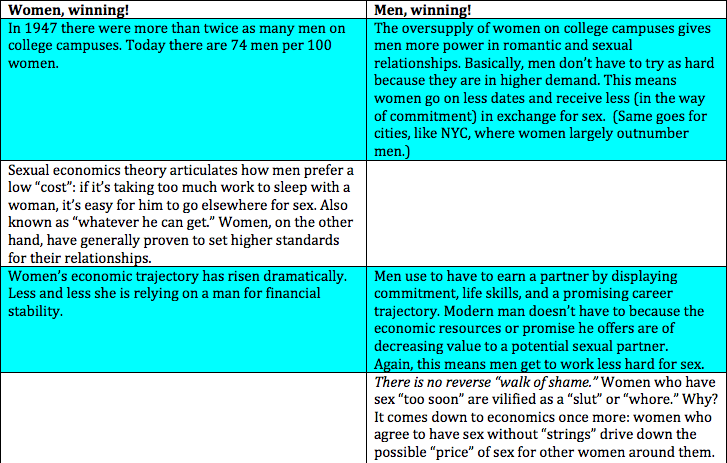

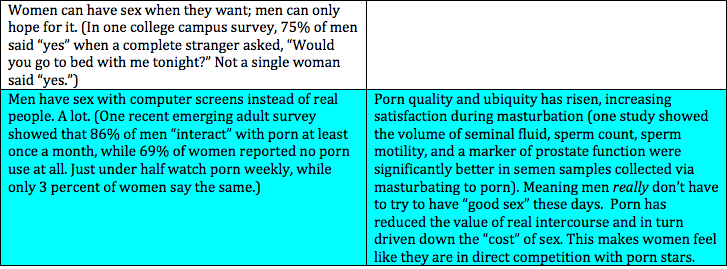

Great post and so true. Thanks for sharing this insightful outlook.